Posts By Jason Luckett
Dear White People LA Times,
I can’t believe it’s been so long since I’ve posted. I left the country the morning after Michael Brown was killed and only heard bits and pieces with my jet lagged mind over in Europe. I still haven’t got my head around what went on in Ferguson and continues to happen. And I’m back home now in Los Angeles observing a strange media era that resembles the seventies in a way with ethnically based TV shows like Goldbergs, Black-ish, and the upcoming The McCarthys touted on billboards all over town. Then I’m spending a lot of time in public elementary schools (part of a job that I don’t talk of much, but is becoming a larger, more impactful part of my life) observing a huge diversity of socioeconomic class and cultures, sometimes fretting over difficulties I see. But what got me this morning was catching up on the Sunday LA Times and reading this article on a film called, Dear White People, by filmmaker Justin Simien.
Here’s the passage that raised my hackles:
part of what has also set “Dear White People” apart is the distinctive diversity of influences behind it. Although Simien has been sure to acknowledge leading African American predecessors such as Spike Lee or John Singleton — he introduced an academy screening of Lee’s debut, “She’s Gotta Have It,” in Los Angeles over the summer — he has also made references to filmmakers Wes Anderson, Stanley Kubrick, Ingmar Bergman, Fritz Lang and a host of others.
The article goes on to talk about how African-American millennials aren’t just influenced by black culture:
“I think the difference in our generation, the sort of African American millennial, is we were not only influenced by black culture, we just weren’t,” said producer Lena Waithe…
Okay… Where did jazz come from? Where did hip-hop come from? How did Chuck Berry or Ray Charles get their twang? Who did Jimi Hendrix reinterpret for his biggest hit?
First, it’s just insulting for the writer to posit that a people which encompasses 14% of the US population, rich as “its” cultural expression may be, would only be influenced by what was produced by that minority. Secondly, it’s sad that an artist would get seduced into such an oppositional statement as Ms. Waithe’s claim. (But I fully understand how something can come across as much more simple minded in an out of context quote.)
The affliction of racism gets into us all as it limits our thinking an tries to explain what’s always been there as new. Sorry for that rather generic statement.
But, Dear White People, progress is not in applauding people or yourself for stepping out of a box that was imaginary in the first place.
I’m looking forward to seeing the film. And I hope it reflects a richness that the LA Times writer or editor failed to truly reflect.
(And hopefully now that my hackles have raised, more writing will come!)
UCLA Diversity
I decided at seven that I wanted to play guitar and go to UCLA. So reading this article this morning broke my hear a little. I posted it on my personal Facebook page without any comment, but then a friend commented about being troubled by the poet’s statement “that being black at UCLA left him feeling ‘isolated and uncomfortable’.” My friend asked, “Is society’s message in the 21st century still, “stick to your own kind”?”
It got me thinking and so I thought I’d paraphrase my reply to him here.
I’d guess that message has diminished a little bit in the 21st century, but clearly not completely. I grew up in a very homogenous town of which I was one of a small percentage of African-Americans, and even though there was not an overarching “stick to your own kind” message, I still felt extraordinarily isolated and uncomfortable at times. If you’re the only cherry tomato in a salad of mixed greens, bell peppers, mushrooms, and shredded cheese, you’re still going to stand out. Being one of 48 out of 5700 probably feels that way whatever the rhetoric of inclusion. What’s ironic about this whole thing for me is that as a UCLA freshman back in the day, I had my first experience of feeling included in a “black community.” Later, as I’ve written about a lot, I also felt the same sense of alienation at times within that community. The truth is it’s still really hard to find a diverse community where one cultural norm doesn’t dominate (racial, religious, ideological, etc.). That’s why affirmative action is still something we need as a society, one that includes all factors, not just “race neutral” because race still is not neutral and may never be. (Nor are many of these other factors neutral, but race is one of the most instantly codified.) But that doesn’t mean we can’t all be part of a delicious salad!
Take a look at the video and read the Huffington Post article below. (And yes, I do sort of love that my doppelgänger is the only kid to start off not wearing a Bruin shirt. Ha!)
http://www.huffingtonpost.com/2013/11/08/ucla-black-enrollment-freshmen_n_4242213.html
Who’s Riley Cooper?
Yes, I’m not a football fan. And I’ve been avoiding most tabloid style news of Weiners, and others. But my sister lives in Philly and a prof at her university wrote an editorial on Riley Cooper headlined “Some of your best friends are racists.” What jumped out for me was this:
“And even when racism jumps out and stares us in the face, we are way too invested in the rhetoric of colorblindness to even acknowledge its presence.”
He talks about having “honest conversations about race” with your friends, with those in whom you are invested.
It’s a good read.
Hollywood Protest Sunday Night
Someone carrying a sign shouted, “Justice! Peace!” I was heartened.
As it was picked up in the crowd, the familiar “No” was inserted before each word and I started to leave.
I saw a young man with a poster saying “We are all Trayvon Martin. The whole damn system is guilty.” I saw observers and agitators. We all held hands to demonstrate our oneness. The police outnumbered the protesters and came in riot gear. We’d walked right through them earlier to reach the people. We’d left the circle already when we heard an announcement that weapons would be used to disperse the crowd in ten minutes. I saw a brown young man in a uniform, holding a BB gun. I saw young women in helmets, holding billy clubs, yell at the observers. I saw men backed by the might of dozens of cars, and lights, and civic power put on gloves for the confrontation.
The last cop we saw talked to us. He said, “What are we supposed to do? They have the right to protest, but after three hours other people have the right to get home.”
Trayvon Martin was just trying to get home before he was hassled by someone with a grievance and the willingness to use destructive force.
The cop said, you’ll never have a problem if you obey orders.
That’s debatable.
Trayvon Martin is a symbol of all of our vulnerabilities, and the “whole damn system is guilty” of creating martyrs and monsters.
Yes, Justice! Yes, Peace!
As peacefully as one can, turn a situation of injustice to a moment for justice without violence or threatened aggression, without fear based tactics.
I do fear that this verdict may create more George Zimmermans, people who are so convinced of their own righteousness that they will create situations that cause them to murder in the name of “self-defense.”
But we can change that with continued humane action (even if it feels superhuman) to insure that all people are treated humanely.
Imagine a world where we put as much energy toward eliminating the use of weapons of individualized destruction as we do against weapons of mass destruction.
Let’s create our humane vision.
What Choice?
I sat down with a cup of coffee this afternoon to listen to the latest Radiolab podcast. As it plays, recent photos stream across the TV monitor of my blended family, my colleagues and collaborators. These are random shots of life. We’re at my Filipino/Italian nephew’s birthday. I see snaps of my nonagenarian friend, Lennie Bluett, who’d informed Clark Gable on the set of “Gone with the Wind” that there were segregated toilets on the set in Culver City, embracing Angela Davis, the activist and educator, at the memorial of my good friend Leo Branton, the lawyer who delivered the closing argument leading to her acquittal in 1972. I see the rhythm section from a recent recording session. I see my friends Ossie and Haize performing with me. I see photos from my friend Aimee’s visit with her baby Echo and more mixed babies in a mixed community. I see a photo of me meeting Grace Lee Boggs. It’s just so beautiful.
And then I hear this. It breaks my heart. OK, it’s an Appalachian story, so prejudge that as you may (though probably not a good idea…). It’s about a mother and two daughters, all “apparently white,” though two identify as black and one emphatically does not.
Listen. I’ll write more later. I have to run out to Inglewood to meet my white mother at her black best friend’s home for Sunday dinner. I’m so grateful for the nourishment I’ve received from this community. It’s helped me transcend experiences I’ve had that resonate with this story.
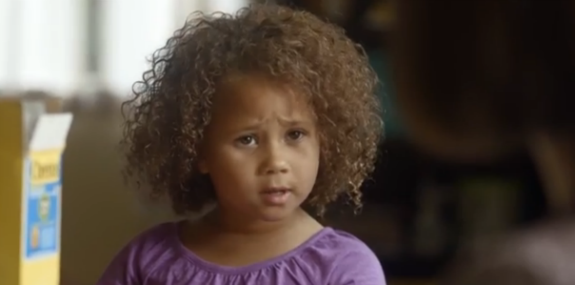
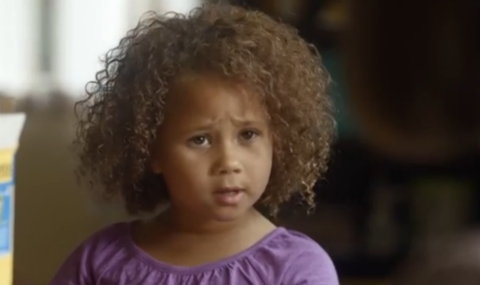
Sweet Breakfast Cereal
When my girlfriend showed me this yesterday, I admit to thinking, “Wow, they’ve really done it!” It’s not the first commercial to show interracial families or visibly mixed kids. But something in the quiet, direct dialogue, the clear relationships, and familial care in this really got me. I hate to even spoil it for you by describing how the kid’s concern for her father totally hit home for me. So watch it now before I wax melancholic:
httpvh://youtu.be/kYofm5d5Xdw
Sure, the little girl is over the top on the cuteness scale. (She’s a throwback to Shirley Temple: overwhelmingly sweet, though watching that creative mind turning is irresistible.) But what I’m feeling are the conversations overheard — or in which she’s been included — about the higher risk of heart disease for blacks, especially men. I remember the strange feeling I had wondering why my dad was more likely to have high blood pressure and heart disease than my mom. Would he develop sickle-cell anemia? Why do only black people get that?
I’m not surprised by the hateful comments that forced General Mills to shut down comments on the YouTube post. I’m glad that some people are. That’s collective evidence of some change.
What inspires me is that there was even a choice made to use an intact, thoughtful family who is unambiguously mixed to sell cereal. Sure, it wasn’t as big of a “[cref obamas-speech-on-race Julia Moment]” for me as when I heard candidate Obama talk about the feelings of bias in his own home with his own blood relatives five years ago. But it was pretty stunning to see the portrayal of a normal family, not cast as exotic or comic relief where normal life problems are examined and racial particularities are an implied fact of life.
John Lewis & Cory Booker on Finding Your Roots (PBS)
Oh my flippancy…. This show blew me away. Such important and love centered stories. I loved it!
Watch John Lewis and Cory Booker on PBS. See more from Finding Your Roots.
A Radical Welcome on King’s Birthday
On the day we as a nation celebrate Martin Luther King, Jr.’s birthday, I’m thinking about how I spent his actual birthday on Sunday. My white Atlanta-born girlfriend — a woman who was in her mother’s womb as she made sandwiches for black families coming to ATL for MLK’s funeral — and I rolled out of bed and hurried out to All Saint’s Episcopal Church in Pasadena for a talk on King and the transformative God. The lecture wasn’t as promised, but rather the speaker, the African-American Episcopal priest, Stephanie Spellers, spoke on “radical welcoming,” welcoming “the other” into your community, uncomfortably adapting to them rather than asking them to conform to your rules alone. She spoke while needling us that the Episcopal Church is the whitest and richest church in the US.
We left later church service — where this Hawaiian-born, Irvine-raised mulatto knew the more of the Negro spirituals being sung than his ATL-bred partner — for lunch with my Filipina ex-stepmother. She is the head of what I call my extended Southern California family; especially now that no close relatives of my nuclear family are on this coast.
At Full House Seafood in Chinatown, we celebrated the 71st birthday of the 12th of 13 children with at least four generations present. I get a little confused, but I know my four-year-old step-nephew is the uncle of the five-year-old son of my ex-stepmom’s niece’s daughter. The eldest present were the 6th child of the 13 and her white ex-military husband. The youngest was the wisest-looking one-year-old I’ve ever seen who had clear designs on my woman.
My Italian/Filipino-American step nephew chased me around with poppers for a few minutes before we shopped in Chinatown for a bamboo steamer for my mother to take back to her small town in New Hampshire. Leaving Chinatown we saw the stirrings of a potential fight between a middle-aged Latino homeless-looking man and a young tattooed Aryan-looking man. After some face-on-face hateful speech, they both eventually walked away. I don’t advise getting into the face of an angry Aryan on a Sunday in Chinatown.
We drove back to our place on the busy road in a beautiful canyon for a short break.
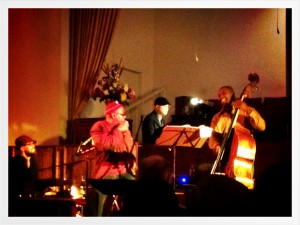 A couple hours later we headed down to the Leimert Park area to Bryant Temple AME Church to hear the wonderful singer, Dwight Trible do a Martin Luther King celebration concert. We arrived late, so I listened behind the window while my girlfriend went to the restroom. From where I stood I could see my reflection in the pane and a woman who would not look away from me. I don’t know if she was mentally disturbed or just disturbed by me, but looking at her face and my pale reflection made me feel extremely white even as I listened to a dreadlocked woman quote and discuss my favorite speech — the “Mountain Top” speech.
A couple hours later we headed down to the Leimert Park area to Bryant Temple AME Church to hear the wonderful singer, Dwight Trible do a Martin Luther King celebration concert. We arrived late, so I listened behind the window while my girlfriend went to the restroom. From where I stood I could see my reflection in the pane and a woman who would not look away from me. I don’t know if she was mentally disturbed or just disturbed by me, but looking at her face and my pale reflection made me feel extremely white even as I listened to a dreadlocked woman quote and discuss my favorite speech — the “Mountain Top” speech.
We finally took our seats.
The crowd and the band were diverse, though I often find myself scanning for cultural tourists when I’m in a majority black setting, especially a church where so many members are dressed formally. I wonder if I am with my multi-culti hippie crew when I roll in and play music or support my friends onstage.
So to bring it back to the unsuspected start: this is the radical welcome and its partner, the radical seeker. As a biracial person in an era when claiming both is an option, you have no choice but to participate in a dynamic where your existence makes some uncomfortable. If you choose to claim your whole self and ancestry, you necessarily have to put yourself in positions where you will feel uncomfortable, perhaps a cultural tourist.
The woman may have stared at me, but the community embraced me at Bryant Temple AME.
I awkwardly sit in my extended Southern California family; I even remember horrible things being said in the home my father shared with my stepmother when they were together. But we continue to show up for each other, welcoming each other into our lives easing awkwardness with familiarity and love.
I know there’s a special excitement when I show up at All Saints because I’m young and darker than a lot of the congregation. But we’re getting to know each other better all the time.
My girlfriend and I were back home by eight. We had dinner with leftovers from the crazy chicken en Español. We watched a British sci-fi television series and danced around the living room to music from a melancholy Scottish band. I felt myself radically welcoming her. It’s in relationships, political, community, and personal that we create community from chaos.
“New Again: I was with the Shark” – Gil Scott-Heron Tribute
httpv://youtu.be/6ps2y3HvY2A
From “All/Us/We: a Tribute to Gil Scott-Heron” curated by Kevin Spicer at Highways Performance Space, Santa Monica.
“Three Playing Fields” Poets & Writers/Connecting Cultures
This is from an event called Connecting Cultures, presented by Poets & Writers Magazine at Beyond Baroque last June. The piece itself is an excerpt of the longer piece I did for the Emmett Till Project last year at Highways in a show curated by Kevin Spicer. I also did a performance of “Three Playing Fields” for the Mixed Roots Film & Literary Festival this year.
httpv://youtu.be/3neFn2kQPsc
Hilarious
OK, I was scared when I saw this posted on my friend’s Facebook, but I thought it was actually hilarious, and filled with mulatto moments!
httpv://www.youtube.com/watch?v=ocM__hQovcI
Great essay from Goldie Taylor on the Grio.com
Painful examination of the continuity of life in pre and “post-racial” America. Watch Taylor read it on the Rachel Maddow Show.
Buddy Collette
I’ve just heard that Buddy Collette has passed.
Buddy was my friend. My last words to him were “I love you.” And his to me were “I love you, too.”
It was just a random meeting at Ralph’s market across the street from where I’m sitting right now, at the Farmers Market. I was in the produce section, squeezing oranges and this handsome elder gentleman came over to me and said, I bet you’re a musician. I was in my early 20s, with a little buzz around me, ready to take the rock ‘n’ roll world on, so I was a little used to this sort of thing happening. But this man had spark in his eyes. We spoke for a few minutes. I felt very encouraged by him. It felt sweet to be recognized by an elder. I imagined myself in his place someday, encouraging another kid. I wanted to be part of the tradition. I’d always felt such a gratitude when older black men, who’d had to struggle so much, stopped to give me encouragement — a post civil-rights kid, half white and quite privileged. It made me feel a little guilty. Yet it inspired me to be part of the tradition of giving back, of encouraging young people to be the best they could possibly be, and to affirm that you, as an elder, recognize the value in their expression.
After the man moved on, a younger white couple approached me and asked if I knew who he was.
“He said his name was Buddy,” I said.
“That’s Buddy Collette! He’s a jazz legend! You’re a very lucky guy.”
A few weeks later I was in the Bob’s Big Boy near my apartment on Wilshire Blvd, and there was Buddy at the counter. We said hello again and a friendship was born.
We never got to play together, but over the years I’d go to see him play or tell stories of the old days on Central Avenue, stories of him and young Mingus breaking bottles and stuff to give to Simon Rodia for the Watts Towers that were being built, or how he convinced Charles to give up the cello for the bass, and join his band. They’d jump on the red line and play in the train cars for fun. I loved hearing how he got the unions together, first through jam sessions and musical exchanges with the white classical musicians of Local 47, then the true amalgamation of the Unions. It’s amazing how different the world seems now. It’s hard to imagine my friend, in my city, not being able to join a group with other musicians simply because of his skin color. But that’s what Buddy and this community of artists had to deal with and, mischievously at times, navigate.
Then later, after his stroke, Buddy started to show up at my events a little more. It thrilled me when he came to the opening of a film I scored, or when I’d hear him talk up my talents and versatility to other people. When he came to see me at Kenny Burrell’s birthday performance at Royce Hall, he told me I had what Nat Cole had with my ability to sing. I should take that to heart more than I have.
One of my favorite conversations with Buddy was at a memorial for a dear friend of ours, Geri Branton. He told me that he was playing piano with his right hand. He was so excited by the voicings he was discovering. He had the passion of student just getting the concepts that would open the entire world to him.
That delight in discovery along with his deep memory was what made Buddy so special. His stories and music were so good because he was always attentive and curious. My sister and I took him to dinner one night at Versailles’ Cuban restaurant after seeing a play by Roger Smith about Watts. Again, he had a pouring out of memories and a delight in going to theater and us hanging out together. He just brought so much joy to my life! And he reminded me that there were always new discoveries to be had in our city and in our lives.
I’m also remembering the time sitting with him and Brock Peters at Geri and Leo’s 50th Anniversary party. Seeing these two men meet for the first time showed me the humbleness and excitement the greats have. They were passionate about each other’s talents and the growing each of them was still doing.
That spirit endures beyond the body, the spirit of affirmation, encouragement, aspiration and the desire to connect with other beings. Buddy connected me to the past, present and a vision of a beautiful future of respect, love and possibilities.
Facebook Doppelgängers
I don’t know how these things get started on Facebook, but I got hooked in. Someone started this Doppelgänger week so I thought I’d think about all the arbitrary people I’ve been compared to. Not always physically, but more often than not, yes.
Here’s my post:
A parade of biracial people, black musicians and a surprise.
My Doppelgängers and people I’ve been compared to.
Jennifer Beals – In high school, “You know, don’t take offense, but you kind of look like Jennifer Beals”
Lisa Bonet – Later, “You know, don’t take offense, but you kind of look like Lisa Bonet”
Tracy Chapman – “Hey, you’re kind of like a male Tracy Chapman.” At least I made a lot of money off that when I got signed to EMI Publishing.
Jeffrey Gaines – But Jeffrey got the big record deal. The same Chrysalis guy was at both of our shows a lot during the time.
Lenny Kravitz – When I put a band together, I got this all the time. I had a couple musicians that overlapped, so it’s not entirely unexpected, but we probably sounded more like the Counting Crows. The funny footnote to this was my friend Sam in college (who really just wanted to play bossa nova guitar) kept trying to convince me to try his friend Lenny out as a bass player, but I was convinced that Sam was the bassist for me, so I never met Lenny then.
Terrence Trent D’Arby – “He’s kind of like Terrence Trent D’Arby as a happy go lucky kid,” someone wrote in the press somewhere.
Slash – That’s pretty easy from this photo.
Kristoff St. John – Oh and there was this time when I was auditioning for movies, and people used to call me his name every once in awhile. He got buff, I stayed skinny (well sorta).
Michael Jackson – Of course.
Tom Petty – This is a joke…sort of. I put this in for arbitrariness of this all. The story is that a record exec I knew from the eighties and I bumped into each other at the baggage claim one day after my first CD came out. This was a record I did with Jeff Trott and some of the other folks that were playing with Sheryl Crow at the time. We’d put the CD in his 90’s era trunk changer. And as we listened he said, “This would be really great…if you looked like Tom Petty.” Then we got to track 7 of my 6 song EP. Yeah, the discs had switched and what came out was a Boyz to Men sort of clone. The exec turned to me and said, “Now here, it sounds like you’re on to something!”
I mean I can see the resemblance in some of these people, but mostly I think it was just that there wasn’t enough biracial or even bicultural representation in the culture as I was coming up. That’s why I’ve told the stories I do throughout my career. Some of these Doppelgängers have been my friends over the years, which is kind of funny after they felt like a thorn in my side as I was younger. But we usually had a real instant affinity when we met. Maybe that vibe contributed to the comparisons…
Chat with Fanshen and Heid on Mixed Chicks Chat
2nd Mixed Roots Film & Literary Festival – 06/13/09 – Japanese American National Museum
The Black Body
I’ll have an essay in a new anthology to be released on October 1, called the Black Body. You can preorder it now on Amazon. I’m not yet famous enough to be listed among the contributors, but my essay will be right there in the first three along with Innaugual Poet, Elizabeth Alexander! Very exciting!
Texas Border Patrol
My mother’s family came on the Mayflower. My father’s on slave ships, then mated with those who were here before Columbus. And TBP checks my trunk and asks if I’m a US citizen.
Jason Luckett – 04/19/08 – The Neighborhood Cup
The Truth About the Fact – 04/10/08 – Loyola Marymount University
The Julia Moment – Obama’s Speech on Race
The easiest place to start is at the tears. And for me it was the mention of the white grandmother “who loves me as much as she loves anything in this world.”
I remember first really connecting to my black American self reading the Autobiography of Malcolm X while traveling in Europe. I was in from the beginning, along with the rage, understanding Brother Malcolm’s hatred of the “white rapist blood” within him even though the preponderance of “white” blood in me came from histories of love and directly from a courageous woman who moved across a continent and an ocean to marry a man who feared the social repercussions of his choice. And though Malcolm eventually re-evaluates his characterizations of the “blue-eyed devils,” embracing a multi-hued community of sincerity–a journey I joined in my reading–I was momentarily just as much with him when he proclaimed that the only thing he liked integrated was his coffee. I understood the history. Parts of my life connected viscerally to his narrative through my own experience and the stories both my father and mother told me. I was caught up in his intelligence and charisma. Ultimately I was inspired by his capacity for change and love.
My father’s generation have told me about the moment they saw Diahann Carroll on TV in her show Julia. She was simply a beautiful black woman, sans caricature, neither Madonna, nor whore. A woman.
When we talk of race in this country, particularly in this era, it is generally of tolerance, of how close we are or not to equality, of self-identity, or in platitudinous phrases and descriptions of colorblindness (“Love See No Color” [sic…and gag!]), of a post-racial society. We speak “people of color”–whose opposite, I guess, would be “people absent color(?).”
And I’ve heard all the justifications for black rage and white anger.
But in political dialogue I’ve never heard a self-identified black man, speak of the absolute love he receives from his white family, his complete connection to them, even as the nearly inevitable racial experiences create moments of tension within that primary relationship. This was my Julia Moment.
Most of my “friends of color” have had our moments when we said we’d never date a white person again. And I’ve been asked if that sentiment offends me, seeing that I must have some connection to my whiteness. How could a sentiment that I’ve adopted myself for a period “offend” me? During my time of self-segregation I discovered that cultural ideas were as jumbled and problematic in my limited community as they were in the larger community to which I belong by blood and experience.
That’s the complicated beauty of Obama’s speech from Tuesday morning. I cannot disown, we cannot disown the white, the black, the brown, the Asian, the native people of this land nor can we deny the legacies of what has happened in the past and what is happening now that creates division in our society. The “whole” experience, the identity beyond the hyphen that adds divisive distinction preceding the word American, is a world where we can hold the profound and profane in a single family.
I was my maternal grandmother’s first grandchild. She wasn’t happy with the idea that her daughter was marrying a black man. A year after they were, my grandmother and I started a love affair that would continue into my 30s. We’d hold hands at our favorite bench, looking out at the lighthouse, facing east towards old England, from where our ancestors came in the 17th Century. I usually sat to her left, so when I looked towards her, in the distance southeast was the land where some of my family was bought and brought to this country. Behind us was entire land that used to belong to a brown people and the coast where I was raised in the sunshine. Even further west is the island of Oahu where Barack Obama and I were born. And beyond that is the Philippines where my step mother was born and raised.
This isn’t a platitude or a list, this is our family. I don’t love everything that happens within it, we’re a complicated community, but the bond and the love is irrefutable.
(c) Jason Luckett, March 19, 2008
Definitions
I just sent out my first full blast out about this blog and one of the first dialogues got me to question of why people like me and Barack Obama “only considered and referred to as black” when we’re just as much white. Well, of course, that’s not going to be answered in a quick e-mail or blog entry. But a simple answer is: it’s the power structure. I don’t want to repeat myself too much, but a lot of it has to do with the color dynamic I wrote about in the ¡SÃ, Se Puede! entry a couple weeks ago. And it starts with the historic “one drop rule.” In the quick reply to my friend I came up with this: People are defined by others by what sets them apart, what makes them different from what’s considered the norm. People self-define by their source of power. The history of “passing” is about people claiming “white” because that gave the sense of power to elevate above the restrictions of segregation and prejudice. The converse of that is the idea of strength can also come from the triumph over adversity. Outside of racial identification you have people describing themselves as “survivors” over cancer or “(recovering) alcoholics” when they give up their addiction. So perhaps racial self-identification is predicated by the same factors. For light skinned Blacks there is a complicated layer because light skin, “good hair,” etc. often affords more privilege. So to remain engaged with the plight of the struggle for all to be afforded equal rights and opportunities, many decide to identify as Black. (Since I started writing this entry an interesting discussion was posted on the New York Times called Go Back to Black which examines the inclusionary history of the US African American community, but also the exclusion of that term and idea when it comes to Blacks from non American-slave descendants. Another interesting post on the subject comes from my friend Meri Danquah.)
So my preferred identification has always been bi-racial (after I took the term Mulatto to be derived from the Spanish/Portuguese word for “small mule” though some disagree with that etymology), because it acknowledged both the privilege and struggle that has come from either definition in either community. I want to be reminded of how individuals throughout the power spectrum perceive me and by not choosing an exclusionary term, and claiming the white and black, I acknowledge that I’m aware of the perceptions of power and welcome discussion that calls into question my participation in an oppressive system. Sometimes I’m oppressed, sometimes I’m perceived as the oppressor. Sometimes I oppress and sometimes I think that I’m being oppressed by an individual when it’s largely an unconscious act as a result of ideas formed under a White Male Patriarchy.
So where does all this lead us? It’s interesting that Barack Obama would identify as black, aligning himself with achievement against oppression, rather than more strongly identifying with the source of privilege in his life. I’ve read a few posts online saying that he’s not doing himself any favor by not strongly claiming the race of the blood family that raised him, but the reality of it all is that even people like my friend who wrote to me initially recognizes that people like me and Barack Obama are considered black before we’re even asked to identify ourselves.
I’ve often said the great privilege of being biracial is that people from various communities view you as included rather than other, then the biracial person has the opportunity to shed light on how one of the “included” can be treated when perceived as other. So today it’s still a very powerful statement to claim to be black when 1 in 15 black adults (including one in nine black males between the age of 20 and 34) are behind bars when distancing yourself from that classification may make your life easier.
So yes, biracial, with or without the hyphen suggests hybridity and duality, as an offensive idea to some as being aligned to a mule. And to claim that as my identity doesn’t even allude to what the sections of the “bi” are. But it invites questions which I choose to answer or not. I am black. I have an intimate connection to the diaspora that the term African-American was supposed to foment yet has somehow created distance. And I’m white, formed by the love my blood family and the community that I grew up in. Though it’s harder to say the later, because that same community that nurtured me also housed elements that violently reminded me that I was black. And I don’t think it’s a stretch to say every black person in his lifetime has been reminded at one inconvenient time or another that he or she was not part of the white power elite. And though biracial people may get uncomfortable reminders from their community of color, there’s not the same dynamic. Prejudice is prejudice, but racism and all the other so-called “isms” are indicative of an historic and present power structure. And even with a black President of the United States, blacks may still be nearly 45% of all prisoners in the US on “Day One” though representing only 13% of the US population. (Whites are 35% of prisoners, 70% of the US population, Hispanic are 20% and 12%. These are rounded figures based on a 2003 study by Human Rights Watch.) So it also feels like an act of courage to claim your benefits derived from your connection to the power system that has despicable aspects that you’d like to change. (And lest you think I’m going negative by highlighting prison data look at this article from the Associated Press lamenting the loss of Black CEOs for Fortune 500 companies–down to 4 in 2007–including this quote: “10 or 15 years ago, we couldn’t have had this conversation, because there was no one to talk about.”)
Lastly, what does it mean that biracial (black and white for me) doesn’t parse out the English or Scottish of the WASP lineage and the Native American and French of the Black lineage? You know ultimately this stuff can be parsed to the DNA that says white person X has more African Ancestry than black person Y, and in the biology of it all there may be genetic benefits and disadvantages. So the definitions are subjective, but an informed subjectivity acknowledging the objective political and historical reality of racism, colonialism, etc. creates a better dialogue. And that dialogue, acknowledging the historic and present “matterings” of race may get us to point where race matters much less in terms of opportunity and general peace. Mulatto moments may be humorous or learning opportunities, but they’re not inherently peaceful.
Perspective and Collective Assumptions
Prompted by Paul Krugman’s Op-Ed piece and blog today claiming venom from Barck Obama’s supporters with regard to Hillary Clinton’s campaign and alledged race baiting–which Krugman attributes actually to the media–I’ve just watched the YouTube video of the question and answer that started this conversation about MLK and LBJ. It is the reporter who picked the segment mentioning King, which was one of several illustrations of “hope” in Obama’s stump speeches, to quote back to Senator Clinton. I see no racist intent in her response, nor do I see it as a deviation of her “experience matters” campaign stance. And strategically, one never wants to add complexity to an argument that would cede ground to one’s opponent. But her response does echo a patronizing history of majority privilege. It does seem to reinforce the division of labor, that the marginalized should continue to campaign for their goals outside the system and that change is only achieved when an insider, a beneficiary of long established hierarchies decides to ratify the outsiders’ ambition. Couple that with former President Clinton’s mention of Jesse Jackson’s wins in South Carolina, excluding mentions of his own win or John Edwards win or Al Sharpton’s loss and you get a picture of Black leaders as marginal outsiders at the very least.
Is that playing the race card intentionally or does it speak to a deeper status quo mindset that views Blacks as inspirational figures but not worthy of consideration for administrative leadership? I don’t believe that Hillary isn’t sincerely inspired when she realizes that there is an African-American man next to a European-American woman on the stage next to her running to lead the nation. But I do believe that her drive for the office may blind her to the some of the slights people who are not European-American feel everyday. And I’m clearly aware that in my editing of this comment, I went back to insert the word “man” after “African-American” and I inserted “European-American” before the word “woman.” Is it a given that a person running for President is a man? And is it a given that a woman running for President is white? Changing our collective assumptions about people in this world should be a vital project for the “Leader of the Free World.” It should result in strengthening our international image as well as creating a climate for greater security for us domestically. I think all should avoid using “Missus Clinton” in reference to Clinton as much as all should avoid efforts to attach marginalized Black leaders to Obama, as Bill Clinton has done. Overall I believe that Senator Obama is better positioned to change collective assumptions. However inspirational is her potential to break the glass ceiling, Senator Clinton and her team seem too locked into past divisions of patronage based on race, class and other privilege to offer as effective leadership to a diverse nation and world. If you are baited, it’s your responsibility as a leader neither to bite, nor deepen the divide by short sighted or misleading comments. Obama will be tested and baited by the media as the Democratic candidate for President. It is unknown how he will respond to the “Clinton Rules.” But we do know that in her self-touted vetting process, Senator Clinton and President Clinton have both failed.
Are they race-baiting intentionally? Probably not initially. Are they trying to capitalize on racial politics? You decide. (Frank Rich thinks so.)
¡Sí, Se Puede!
A couple days ago I added the subtitle: “Mulatto Moments in ‘Post-Racial’ America.” Of course I hope that everyone here would recognize the jest: how could you really have “mulatto moments” if there weren’t discoveries that weren’t based in truly segregated realities? But I’m consistently surprised. Years ago I used in a song: ‘The colorblind man sees better than the rest / I’m trying to believe it’s true.’ I’m convinced now, as I pretty much was then, was that the operative part of that compound is blind. (There’s a good Op-Ed by Uzodinma Iweala that appeared in the L.A. Times on Jan. 23 that breaks down the idea of “Post Racial” America.) And who really wants to be blind? I’m sure there were folks with me at the Democratic Debate in Hollywood on Thursday that saw “a man” staring down from all those posters for Barack Obama. I saw a man, too. But I saw a biracial man, who is called Black, or African-American, by himself and others, who kissed his white grandparents, like I kissed mine. And because I know a little of his story, I know that he’s spent some time here and there, in different nations, where different religions were dominant. And I was a little scared thinking about the joy I feel seeing old pictures of similarly hued Malcolm X (probably lighter than the biracial Obama, and definitely lighter than Denzel Washington), and Malcolm’s end. I wasn’t born then, Barack was 3, and things have changed. Now there’s real hope that a man that looks like that will lead this country…a country that was heavily invested in not giving power to anyone even the shade of a paper bag when he was born. (Follow the link and search around, a paper bag test was really the result of internalized racism, but you get the picture. When was Thurgood Marshall appointed to the Supreme Court? And what shade was he? The later’s answer is interestingly the day after Loving v. Virginia struck down all Anti-Miscegenation laws in the country, June 13, 1967.)
I’m glad I know this history and can see it.
I don’t need to know the concepts behind a great piece of music. I don’t need to know the lyrics. But I’m excited by that knowledge, intrigued by the confluence and how that contributes to the power of the work. And I’m annoyed by those who dismiss it, dismiss the traditions of the music. This isn’t because I’m getting old, the first song I ever wrote was influenced by Woody Guthrie’s use of traditional source material. I was 9.
So I’m equally annoyed by those who are ignorant of the history of color prejudice, who wistfully long for a period when it will not matter in the near future or, even more egregiously, claim that time is now.
Tonight I’m just getting in from a Black/Brown dialogue by way of a Poetry Choir Performance in Highland Park. Really, most of the crowd, however identified, was ironically the shade of a brown paper bag, give or take. Maybe this is post racial, where we’re all the same shade but the difference is the cultural traditions. But the shade (the cover that you can’t judge!) leads to a story of the alchemy. And part of that alchemy includes the history of prejudice and how it has impacted all of our lives, privileged and not.
But beyond that, ( ¡SÃ, Se Puede!), history is fun and illuminating. I’m at the debates Thursday, and the blue English signs for Obama are all out. So I get the red one, which is in Spanish. I’m not bilingual. And I’m the kid who took French in my upper-middle class suburb. But I dug “El pueblo unido jamás será vencido” better than “The People United will never be defeated” when we demonstrated against Aparthied back in the 80s. And I heard ” ¡SÃ, Se Puede!” then. I heard it in the streets a couple years ago. And I’m completely thrilled. There are probably some cynics that will say it’s a co-opting akin to AeroMexico’s. But to me it’s an embrace, an embrace of the Farm Workers’ movement, et. al. I feel like only a true believer with the audacity of hope could think that he could use a phrase so identified with leftist movements to win a mainstream election while signaling his inclusion of people who have been historically shut out. And talk about inclusion, Obama even has a LGBT link on his page! (I wonder what Pat “see sah perda” Buchanan would say about that!). I’m just so excited that my generation, a generation with leaders that are post modern, recognizing the real presence of difference, of cultural circumstance, without bowing to the hierarchies of the past, has the chance to lead. That is the future, not some colorblind, bland, “we’re all the same” thing.
Yes we can embrace all these differences and thrive. Remember when multiculturalism was “hot?” Well now it just “is.” And we need someone who understands that intuitively, dare I say natively. We don’t need someone who’ll cynically use codified race baiting on the campaign trail, whether intentional or not, and I know it was Bill, not Hillary. (Remember when Bill Clinton discussed what the meaning of the word “is” is? I embrace ambiguity, but there’s a little cynical manipulation going on there. And I liked Clinton well enough. But both Clinton and George Wallace have won the South Carolina Primary along with John Edwards, Jesse Jackson and proto neo-con Henry M. Jackson.)
I said originally that this wasn’t going to be a blog just about Obama. And it isn’t, but this movement is really inspiring me.
Just a link today…
My mother forwarded me this NY Times blog this morning. It’s an interesting discussion…and the comments from what I’ve seen so far are virtually free of the Internet’s usual banalities. http://egan.blogs.nytimes.com/2008/01/16/race-bait/
And hope moves to concern…
I’d wanted to start publicizing this blog last week when I started it but life gets busy and I didn’t jump on it. Today I received a second copy of the “Be Careful, be very careful” email that’s circulating after a conversation last night regarding a golf channel announcer Kelly Tilghman’s “lynch him in the back alley” comment with really good friends of mine who had no idea of the offense that could cause. So my second post after the primary loss in N.H. is a lot less starry eyed about the state of the nation.
The “mulatto moments!”
So let’s start with Saturday night. Me, a Filipino-American, a South Carolinian white American, and a Chinese-American are sitting around after a steak dinner and bottles of wine. Three guys in the neighborhood of 40 and a woman around 30.
“You’re black, right?” says the white man with his characteristic jest. He’s one of my best friends, and has been for years, so I’m used to the silliness and know there’s no malice and potentially ensuing political incorrectness is more Lenny Bruce than Michael Richards.
So did you hear about the white announcer on the Golf Channel and the controversy with Al Sharpton?
I don’t pay attention to golf or Sharpton much, so no.
He explained that she had said in the context of a discussion of Tiger Woods’ dominance, that the only way to stop that was to “lynch him in the back alley.” (It was actually an amplification of her co-announcer’s statement that the players would need to gang up on him to pass him.) Sharpton wants her fired. She got a suspension. I’m with Al on this one. Tiger said that Tilghman and he were friends and it was no big deal.
I’ve bit my tongue. I have and haven’t called friends on offensive remarks in the past. It’s a subjective thing. Like the law, it’s discretionary.
I was asked my opinion and I agreed with someone whom I don’t think is an idiot, however goofy he may seem to me at times. My friend kept asking if I thought she should lose her career, based on one remark, by being fired. I don’t think necessarily that it is career ending to lose a job, but I do think that people in the public communications business have a responsibility to understand the weight of certain terms in a diverse society. And fairly or not, a white woman from the south saying a black man should be lynched, when a good many black men were lynched and castrated for the appearance of an alliance with white women in the not so distant past, carries a skewed weight of offense. (Anyone remember To Kill a Mockingbird?) So I would fire someone who made such a remark because I wouldn’t want one of the faces of my organization to be someone so ignorant or irresponsible. But if in the next awkward breath she said, “Oh my god, that was awful, I’m sorry” I might give her a pass. Jason Whitlock on Fox Sports had a nice discussion of it, and he was cool with the two week suspension. (http://msn.foxsports.com/nfl/story/7658418) For me, I’d just wish her well and ask her to move on. (I also liked this article regarding the issue: http://www.dailyherald.com/story/?id=112662 which speaks to the comment from Tiger’s Camp of the “non-issue.”)
But what came up in the discussion later while we all were trying to bring up other contexts with other races, etc. surprised me more. One friend had never heard of the Japanese Internments in World War II and another friend kept insisting that the majority of Americans didn’t even know Barack Obama was black, and most likely thought people were talking about Osama bin Laden when they heard the name Obama. Then I had to explain the caucus system to the group. We don’t have caucuses in California or New York or Florida, so it’s understandable to a degree, but it still makes me wonder how people can vote with such little knowledge of the way government works.
Do we all understand at this point that the US is a Republic and not a Democracy? Though the framers were political animals that caved to a 3/5ths ranking of the humanity of “slaves” who were not allowed to vote, they were smart enough to know that Democracy means Mob Rule and a Republic is a more reasoned and protective sort of government for the needs of all, especially those of minority opinions.
So in a way, it almost seems like the major two parties are misnamed. In high school I wrote a Political Science paper where I compared the Republican Party to the “Id,” concerned with individual liberties, “what’s in it for me?” and the Democrats to the “Super Ego,” concerned with the collective good, sacrificing for the poor, etc. Granted this was the 80s, before “ending welfare as we know it” was looked at as a Nixon in China moment. And I’m abbreviating in my haste to blog as opposed to working for the grade. But my Republican friend agreed, saying that under George Bush he was able to get health care, every job he ever considers makes $80,000/year and he got $600, so he votes Republican. (Do you remember the Bush tax rebate based on our budget surpluses during the Clinton years?) In our discussion he kept asking me to “dumb it down” saying that if a candidate offers $600 and another doesn’t most people are going to vote for the one offering $600. I asked if you were a family of three siblings that got to choose your dad and one candidate offered to give allowance and health care to you, but not your siblings would you vote for that candidate knowing that your brother and sister will suffer, but you’ll be better off (in those tangible ways)? I know, though I might’ve had a moment when I was a tyke when that would appeal to me, I would choose the parent that would provide for my family equitably. Suffice to say there was a lot of agreeing to disagree, a few votes of “present” to keep the peace, and a few accusations of people being pissed off. There was also a dispute over which candidate would present a more dramatic symbol to the rest of the world if elected President of the United States.
Then this morning–to speak to the notion of dumbing down–I received the above mentioned forwarded email. And to clarify, both times I received the e-mail it was from a white person sending it on to me with a copy of their rebuttal to the person who had sent it to them. And though I’ve received my share of inane forwards from friends of all backgrounds, it struck me that these e-mails were sent to white people, and not me. Either my immediate community is hipper than my extended network, or some who might’ve sent it to me knew I’d think it was inane or worse. I dunno, but there’s your answer on the symbolism question. In a world where two thirds of the world is brown skinned or “people of color,” many who believe, at best (as do many good, educated Americans) that we would never elect a person of color to be the leader of the free world, and at worst America is an intolerant country that demonizes people of color (despite its tokens) and even more so people of non Judeo-Christian religions especially the “last branch” of the Abrahamic religions, the election of a man (who for the record is Christian), with a non-European, Muslim father, who has lived in the “third world” even if just as a child, would probably seem more significant a symbol than a white woman joining the tradition of Margaret Thatcher and Angela Merkel as leaders of some of the most powerful nations in the world and as leaders of countries where the head of government is of the same dominant race or ethnicity as its populace. (Add to that list most of the women here, http://en.wikipedia.org/wiki/Category:Female_heads_of_government, think of Corazon Aquino, Indira Gandhi, the late Benazir Bhutto, and Ellen Johnson-Sirleaf.)
All this reminds me of the old gotcha joke/question: What nationality is Peruvian President Alberto Fujimori?
I don’t know if it’s really smart in consecutive breaths for an Obama supporter to mention that guy who turned out to be pretty bad news. But the idea that the president of a nation is not of that nation’s nationality is a mulatto moment akin to my being asked “what nationality are you?” while my features and skin tone reflect the people who were here before Columbus, the people who came after, and the people who were shipped here in chains.
I like Hillary. I think she’d make a good president. She lacks the charisma and some of the political instincts of her husband, which to me make her slightly less suited for the role of “leader of the free world.” But they make a good team, with her coming down as probably more passionate about some things I care about than Bill. I like the effectiveness of the Clinton machine. [Addendum Feb 3: At this point, after South Carolina, I’ve lost respect for the Clinton Machine, I’m just saddened by them.] And I think she would be a great role model to all Americans as one who remains committed to an ideal even in the face of dramatic odds or shame. (I liked this article on the Incremental Revolutionary, comparing Obama and Hillary Clinton: http://www.newsweek.com/id/91755).
I just think Obama is a stronger symbol of change and probably better equipped to get the job done in terms of negotiations across party lines (the baggage to experience ratio seems to weigh in his favor in my view), symbolism–which is extremely important in politics, charisma and even political thinking.
So here’s the real answer to that question: Peruvian born, Alberto Fujimori, the son of Japanese immigrants to Peru, actually did have dual citizenship secured by his parents for him. So truth and symbolism is more complicated than it appears.
And here’s my response to the email smear: (This was actually a response to the original sender’s second e-mail maintaining Obama has lied to us about being a Muslim, after my friend called her on perpetuating ignorance. Be careful of using “reply to all” with your emails… click here for the entire exchange, names removed of course.)
It’s snopes.com, not snoops.com. And if you look at it you’ll see that most of the assertions in this email are lies and the rest are mischaracterizations. The link is http://www.snopes.com/politics/obama/muslim.asp There’s also a good article called “Sliming Obama” on Newsweek’s site: http://www.newsweek.com/id/91424.
Unfortunately, by replying to this email by saying “The fact that he is Muslim isn’t my concern – the fact that he lied is!” without verifying your information shows a really sad pride in your ignorance on this issue. He’s not Muslim (freshman congressman Keith Ellison is and after he was sworn in posed for pictures with his hands on Thomas Jefferson’s copy of the Koran) and Obama’s at least as honest as any of the other politicians running for office or running the country. (I’d venture to say more so.) Also Clinton fired a campaign worker who forwarded on a similar Obama smear e-mail. (And please don’t mischaracterize this as a claim that it originated from the Clinton campaign…as politically ruthless as they are, I can’t imagine them organizing something so laughably false. I actually like the Clintons and feel they are really effective leaders on issues of tolerance among many other things.)
I don’t know you “—“, but you’ve sent easily verifiable lies twice two more than a dozen of your friends. I can only hope that most of your friends are smart enough to investigate before they believe a chain email and cast a misinformed vote. Things like this make me really happy we live in a republic rather than a democracy. (The United States of America is a federal constitutional republic…follow the links, it’s edifying).
Jason Luckett
I changed my subject line to the email response from “Be Careful…” to “Please verify before accusing people of not being truthful.” Yet, for a moment earlier in this writing, I was going to attribute these emails as being sent by white people to the white people who forwarded rebuttals to this half-white guy. I don’t know that my mother’s classmate was in fact white, (though being in her mid-60s from Maine it’s likely) nor do I know that my friend’s friend was white. What I know is that assumptions often need to be examined. By all of us.
I know I’d be happy in a world where the word lynch didn’t have horrific associations for blacks. And I’d probably be just as happy in a world where I didn’t know that it had horrific connotations, until I made the mistake of using it in a public forum.
As a six year old child I was happy in a world where the word Nigger meant the same to me as the word Fucker until I called a black boy Nigger and was beat up. My parents educated me and five years later I was beat up by a white kid and told to run home like a Nigger. I knew what it meant.
Did he?
(And PS, I don’t mean to characterize my friends as heartless or unintelligent. These are people I love, who are wonderful people, generous and we’re about as diverse as they come. I’m just amazed that education and the national media as well as the public discourse has been so weak, that vital moments of history and important themes in the larger context of America’s character are unknown to so many of us. What I’m really thankful for is that we as friends, and being of such “diverse cultural backgrounds” have the love and respect for one another to be able to speak frankly, disagree and yet really enjoy each other. That’s what the Obamanation is: people gathering in harmony in situations and relationships that less than 50 years ago were seen as anathema in the eyes of much of the public and the law.)
Peace.
And so it begins…
The beginning of this pet project, is to what I refer.
After the 2004 Democratic Convention Speech, I was blown away thinking that this was the America I know. This brown guy with a white mother and black father, born in Honolulu talking about unity. That’s always been my trip, same birthplace, similar circumstances, (though my father was from Mississippi and mother from Maine…which some might think is as radical a divide as Kenya and Kansas) our parents at the U of H though a few years later than Obama’s. But this isn’t about my similarities with a man whom I admire in any way other than a starting point.
Of course I always embraced my blackness and whiteness, Southern and Yankee background (however cloaked it was during my time of only claiming “Indian” in junior high school). And I believed it gave me a great opportunity of intimate access to Black and White America which felt very real and fairly exclusive to me in my 70’s and 80’s childhood. The Civil Rights Movement was “over” by then and I have no direct memory of King’s assasination or Bobby Kennedy, let alone real segregation. But I saw my Los Angeles family friends and my Irvine friends and received very different information from each.* So I took music and tried to tell stories in which people who believed they were like me could hear stories of people whom they deemed “other” while claiming my connection to both. It’s a struggle. But everything is a struggle when it comes to youth and identity. And it continues today with national, ethnic, sexual, and religious identities.
So my sister and I came up with this idea of a project where we would photograph people of mixed heritage and let that speak under the term ObamaNation to what we’re becoming as a culture. It’s a culture where identity is fluid, though where I feel respect should be paid to the legacies we represent. So, yes, it’s easy to say we’re all mixed, yet I don’t want to hear a white looking person using the N-word without the recognition of the struggle his Octaroon great-grandfather had with that word and what it represented. And I won’t use familiar epithets for a host of people whom may not be of my varied background, nor will you hear many disparaging mentions of our own pet names from me (our own being the “biracial” black, white with a little Native American and a Filipino step family group). Also, I appreciate the spoken resemblance to the “Abomination” that was claimed in the not so distant past about our existence as human beings.
But Sis and I aren’t photographers. We let it go. But in light of the historic win tonight for Barack Obama, I’d launch this conversation. I want to hear the stories of people who feel they are truly bi/multi-racial or bi/multi-cultural. What do those terms mean? I have no criteria. But I want to hear and create a spot where that conversation can begin in a truly inclusive spot. I’ve seen places where the biracial identity seems self-fetishized (which frankly irritates me as much as hearing from “mono-racials” how “mixed babies are always the prettiest!”). I don’t come from that point of view. I just want to know your experience and share a little of mine from time to time.
I’m not set up in a Huffington Post style at this point, so just use the blogger commenting system and if you’d like to create an article, just mention that in the comment and I’ll stick it up as an entry attributed to you. Or I’ll link to your blog. Let’s see what we can do. And if we get a roll going, maybe I’ll investigate some group blogging application and we can all contribute equally from different locations.
——–
But how do you feel about Barack Obama’s victory tonight? I know I have the good kind of chills mainly because of the what I said above. I love that someone like me, who has had such subtle and more direct intimate encounters with so many cultures is nearer to being able to have the greatest platform in the political world from which to bridge divides. I know when I ran for student office at UCLA no one ran against me because all that had an interest in what my office provided believed I represented their interests. And anyone who may have wanted the position withdrew because they knew that fact made me unbeatable. I was nineteen and that experience of holding the office was why I never continued in politics, but I was able to set into motion some real cooperation and bring the “Cultural Affairs Commission” a little closer to the level of influence of the more commercially oriented Campus Events Commission. I knew songs were my mission after that. But Barack Obama, stuck with politics. He has been able to take the lessons that I didn’t want to ever be close to relearning again and turned them into ideas and orations that unite and educate a nation. I often feel I’ve accomplished in a room of multi-hued faces singing my songs of unity. But his stage is greater, in a tougher arena and his experience is a quarter century long. I have no doubt that he’ll be able to take those subtle experiences that us cultural shape-shifters have and turn elements of them into actionable policy that will bring the nation closer together and improve our global image.
Let’s talk.
Jason
*As recently as 2000 I learned that white people’s hair smelled like dogs when wet and wondered where I stood on the continuum from “good hair” to animal fur. Granted these were young teenagers, not peers, sharing this in a camp setting in a “blacks only” group to which I was a counsellor. The group’s facilitaor told me that came up every year for the stereotype list. So perhaps I shouldn’t event hint at a pass and should be more shocked that stereotypes, or at least such cultural isolation exists in the 2000s. We need a (real) uniter….
Photos
I just switched over to WordPress for the blog and I’d like to post some photos of all of us for this masthead. The branch is groovy, but I’d like to start a revolving gallery. Will you send your best? Please e-mail them to me at info [at] jasonluckett [dot] com. Thanks.

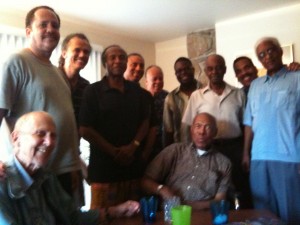

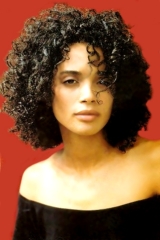
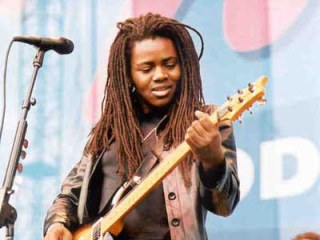
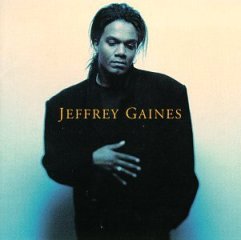
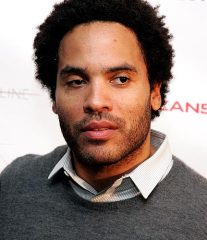
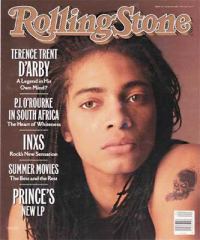

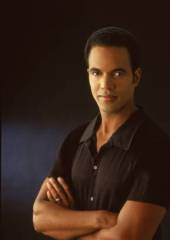
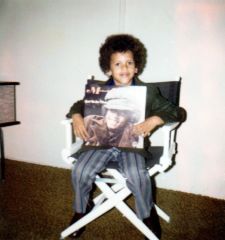
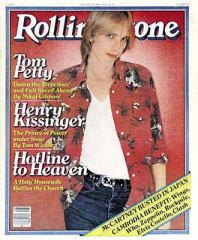
Iced Tea & Skittles
in a pickup truck,
whom the police have asked to remain in his vehicle,
comes into harm’s way
in the proximity of
a 17 year old boy
carrying iced tea and Skittles
walking in the rain
is if the man
gets out of his truck,
confronts the boy,
with a gun
hidden in his pants
the boy could be a martial arts expert
he could be a stoner
he could be a Harry Potter fan
one thing he is definitely not:
confronting people on a neighborhood street
carrying lethal force
That is George Zimmerman
It’s astounding to me that a man who initiated a confrontation carrying concealed deadly force, which he used to kill an unarmed minor, is not guilty of, at the very least, manslaughter. And at the end of it the smiling State Attorney says this trial was never about race, yet in the same breath conceding that she believes the boy was profiled. Are we that desperate to appear post-racial? Why was the trial not about that?
And guns?
No one would have died in Sanford, Florida of a gunshot wound on February 26, 2012 had George Zimmerman not profiled or carried a gun.
Trayvon Martin is dead.